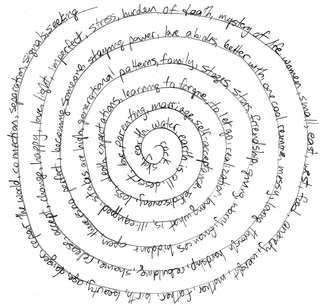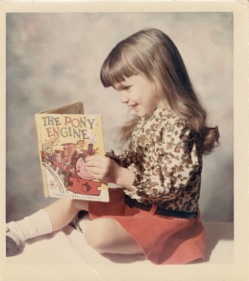
I’ve heard hundreds of their voices this week. Brilliant, sincere, thoughtful voices. Bland, benighted, sarcastic voices. They were all there at this year’s AP Reading.
I’ve just returned from Kansas City, where 1,449 high school and college instructors were summoned to score nearly 1.6 million English Language and Composition exam essays. Yes, 531,000 exams, with three essays each. Of these I read something like a thousand, all on the same question, which asked students to develop a position on the value or function of polite speech, such as “Nice to meet you” and “Hi, how are you?”
The best way I can think to describe this experience is that while in my classroom I am tuned to the frequency of my own students, at the AP Reading the dial’s needle spread to capture every frequency. Thousands of voices broadcast their claims to the vast listening audience: a few trembled with conviction, some held forth with prosaic observations, and many lay limp with vapid utterances. But they were all “somebody’s precious little angel,” as another Reader at my table often reminded us.
And then there were the Readers themselves. (Yes, the word is capitalized, thank you very much.) We were from all over the country, men and women ranging from their mid-twenties to their late-seventies, from inner-city high schools to Ivy League universities, some in jeans and T-shirts and some in hajibs, some naïve and some jaded, but all of us shivering in the air conditioning and trying to remember that to every one of these young writers, their ideas were fresh and original, even if we’d seen the same lines of reasoning all week: polite speech makes people comfortable and is therefore good; polite speech is fake and is therefore bad.
My head is also full of teachers. As an extrovert, I love meeting new people, but even I have my limits.
Let’s talk scale here. First, in addition to the Lang. and Comp. folks, hundreds of other Readers were in the same building scoring exams in other subjects. (In Louisville and Cincinnati, there were thousands more.) It’s amazing how the College Board pulls this off every year, with all exams still scored by humans—not artificial intelligence—and all of us in one room.
And it’s amazing how the Kansas City Convention Center can accommodate all these humans. The room we were in—just that one room—was the size of eight football fields. (When’s the last time you were in a room that required motorized transport?) Each of the three essays had about 500 readers devoted to it, in areas demarcated with curtained dividers. To hear the directions of the Chief Reader, we wore headsets.
A funny remark would elicit a roar of laughter that boomed toward the 42-foot ceiling, thundering like the shouts of the elves in The Polar Express when Santa gives the first gift of Christmas. On the first morning, while we were quietly receiving instructions, I heard the sound of metal screeching and juddering nearby. It sounded like a bunch of people were shoving a train across the concrete floor. No one at my table took any notice of it. Finally, seeing my confusion, an experienced Reader whispered, “That’s another group getting up for a break.” That screeching and juddering was the sound of 500 chairs being pushed back all at once in the next area.
Then there was the food, located on another planet downstairs—nearly a ten-minute walk—in the banquet hall: 24 buffet lines, 12 salad bar lines, several tables of desserts and drinks, and 16 massive coffee urns, always pumping.
But this extraordinary scale wasn’t confined to the workday. There were teachers everywhere in downtown KC, between the convention center and the nearby hotels. On “eat-out night,” when we were all given a break from the cavernous banquet hall, teachers completely filled the restaurants near Union Station. At the Green Lady Lounge, a wonderful jazz venue (a bar with no TVs!), the waitress, after taking our orders, asked, “What subject are you reading?” I even spotted several Readers at the Royals game, amid a crowd of some 33,000.
One evening, after several of us had half-filled an elevator in the hotel lobby, the elevator stopped at the fifth floor and a boy about nine years old, wet from the pool, began to step in. He took one wide-eyed look at us and said, “I’ll wait for the next one.” We roared.
“My God,” someone said, “is it that obvious?”
“Poor kid,” said another. “Guess this elevator looked like the ninth circle of hell to him.”
I felt like a hayseed who’d had her first taste of the big city, but instead of craning my neck to see how high the skyscrapers were, I was craning my neck to see the people who fill my particular teaching niche. I wish I could have met more of those teachers—my tribe, those exhausted, caring people in sensible shoes.
And I wish I could meet some of the kids whose voices I still hear in my head.
I’m looking forward to next year.
(The opinions in this blog are my own and do not represent the opinions of ETS.)





 RSS Feed
RSS Feed
